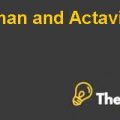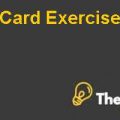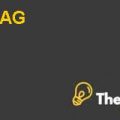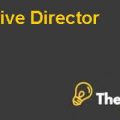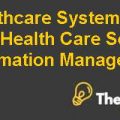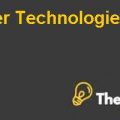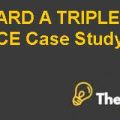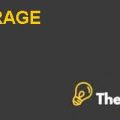PRINTCOMM’S PROPOSED ACQUISITION OF DIGITECH: NEGOTIATING PRICE & FORM OF PAYMENT Case Solution
Problem Diagnosis
The protagonist in this case which is the buyer, Printicomm Company, has to design the most feasible terms for the contingent payment which will protect the buyer if the rosy future assumptions does not occur and also reward the seller on the other hand, the Digitech Company if those assumptions are achieved. Currently, there is a huge gap between the discounted cash flow valuations made by Digitech and Printicomm management therefore, a fixed price deal does not seems possible. Therefore, a combination of the fixed price and contingent payment will have to be decided to consummate this deal. Detailed Monte Carlo Simulation will be applied to generate forecasts and valuations for the contingent payment and the valuation of both the companies and based on that a final recommendation will be made for the final terms of continent payment.
Question 1
What are the pros and cons of a fixed-price deal and an earn out-based deal between Printicomm and Digitech?
There are a number of pros and cons for a fixed price deal and an earn out based deal for Printicomm and Digitech. These are described one by one below:
Fixed Price Deals – Pros
The biggest advantage of a fixed price deal for the deal between Printicomm and Digitech is that it would be the easiest way to consummate and thus the deal could be finalized more quickly. This would also require the purchase and sale agreement, which will highlight the total amount of the consideration and also the form of the consideration to be paid. The fixed price deal is a quick and easiest method to close out a deal. If this deal closes on the basis of a fixed price then both the acquirer and the acquirer would be satisfied after the deal closes out and then Printicomm could only focus on developing the internal capabilities and integrating the two companies.
Fixed Price Deals – Cons
The biggest drawback for a fixed price deal lies with the acquiring company which is Digitech in this case. If this deal closes out on an agreed amount and in future years the market for the printers stimulates significantly in terms of sales growth then the acquire might feel dissatisfied and they might think that they quoted a low price for the company. Another disadvantage is that both the owners of Printicomm and Digitech are not able to reach to similar valuation of the company. Secondly, for Printicomm management to place a good offer it is very much of importance that they have complete knowledge about the company. Both the parties have differing views about the future sales growth and the profit margins of the company therefore, it is quite difficult to agree on a fixed price deal.
Earnout Based Deals – Pros
As there are a number of concerns regarding the valuation of the company, and the retention of the management, the earnout based deal makes more sense. Under this deal agreement, some portion of the payment which is called the contingent payment would be paid later if the acquiring company achieves certain performance targets such as target operating income. The advantage of this deal is that if the valuation and the growth assumptions of Digitech management are realistic then they would be rewarded for that in future years as they meet agreed upon performance goals. Another benefit of this structure was that this type of the deal made a lot of sense from the economic perspective and if the deal is appropriately structured, then it could be a win-win situation for both the companies.....................
This is just a sample partial case solution. Please place the order on the website to order your own originally done case solution.

